SOTALOL - ORAL
PHONETIC PRONUNCIATION: (SO-tuh-lol)
COMMON BRAND NAME(S): Betapace, Betapace AF
GENERIC NAME(S): sotalol HCl
Uses
USES: This medication is used to treat a serious (possibly life-threatening) type of fast heartbeat called sustained ventricular tachycardia. It is also used to treat certain fast/irregular heartbeats (atrial fibrillation/flutter) in patients with severe symptoms such as weakness and shortness of breath. Sotalol helps to lessen these symptoms. It slows the heart rate and helps the heart to beat more normally and regularly. This medication is both a beta blocker and an anti-arrhythmic.
How to use SOTALOL - ORAL
HOW TO USE: See also Warning section. Read the Patient Information Leaflet if available from your pharmacist before you start using sotalol and each time you get a refill. If you have any questions, ask your doctor or pharmacist. Take this medication by mouth as directed by your doctor, usually once or twice a day. You may take it with or without food, but it is important to choose one way and take it the same way with each dose. If you are using the liquid form of this medication, carefully measure the dose using a special measuring device/spoon. Do not use a household spoon because you may not get the correct dose. Dosage is based on your medical condition and response to treatment. In children, dosage is also based on age, height, and weight. Use this medication regularly to get the most benefit from it. To help you remember, take it at the same times each day. If you use antacids containing aluminum or magnesium, do not take them at the same time as sotalol. These antacids can bind to sotalol and decrease its absorption and effectiveness. Separate doses of these antacids and sotalol by at least 2 hours to reduce this interaction. Do not take more of this drug than prescribed because you may increase your risk of side effects, including a new serious abnormal heartbeat. Do not take less of this medication or skip doses unless directed by your doctor. Your fast/irregular heartbeat is more likely to return if you do not take sotalol properly. Also, do not run out of this medication. Order your refills several days early to avoid running out of pills. Tell your doctor if your condition does not improve or if it worsens.
Side Effects
Precautions
Interactions
Overdose
Images
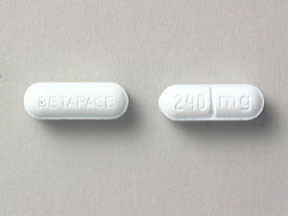
- color
- light blue
- shape
- oblong
- imprint
- BETAPACE, 240 MG
Reviews
Faq for SOTALOL - ORAL
Sotalol oral is primarily used to treat certain heart rhythm disorders, such as ventricular arrhythmias and atrial fibrillation or flutter.
Sotalol oral works by helping to stabilize the heart's rhythm, thereby reducing the occurrence of irregular heartbeats.
Common side effects of Sotalol oral include dizziness, fatigue, headache, upset stomach, and shortness of breath. It may also cause a slow heart rate or make existing heart rhythm problems worse.
It is generally advised to avoid alcohol while taking Sotalol oral, as it can increase the risk of certain side effects and may affect the medication's effectiveness.
Sotalol oral may interact with certain medications, including other heart medications, antiarrhythmics, and certain antibiotics. It is important to inform your doctor about all the medications, supplements, and herbal products you are taking.
Sotalol oral is usually taken as directed by your doctor, typically twice or thrice daily with or without food. It is important to follow the prescribed schedule and dosage carefully.
If you miss a dose, take it as soon as you remember. If it is close to the next scheduled dose, skip the missed dose and continue with your regular dosing. Do not double up on doses to make up for a missed one.
The effects of Sotalol oral may take several days to weeks to become fully effective in treating heart rhythm disorders. It is important to continue taking the medication as prescribed even if you start feeling better.
No, Sotalol oral should not be stopped abruptly without consulting your doctor. Sudden discontinuation can lead to a worsening of symptoms or potentially serious complications. Your doctor will provide guidance on how to gradually reduce the dosage if needed.
Warning
WARNING: Sotalol should be used only in certain patients. Before taking sotalol, discuss the risks and benefits of treatment with your doctor. Although sotalol is effective for treating certain types of fast/irregular heartbeats, it can rarely cause a new serious abnormal heart rhythm (QT prolongation in the EKG). This problem can lead to a new type of abnormal (possibly fatal) heartbeat (torsade de pointes). If this new serious heart rhythm occurs, it is usually when sotalol treatment is first started or when the dose is increased. Therefore, to reduce the risk of this side effect, you should begin sotalol treatment in a hospital so your doctor can monitor your heart rhythm for several days and treat the problems if they occur. Patients usually start with a low dose of sotalol. Your doctor will then slowly increase your dose depending on how you respond to the medication and how well your kidneys work. If you respond well to this medication, during this time in the hospital your doctor can determine the right dose of sotalol for you. Some sotalol products are used to treat certain types of fast/irregular heartbeats (atrial fibrillation/flutter). These products come with additional written information from the manufacturer for patients with atrial fibrillation/flutter. If you have these conditions, read the provided information carefully. Do not switch brands of sotalol without checking with your doctor. Do not stop taking this medication without consulting your doctor. Some conditions may become worse when you suddenly stop this drug. Some people who have suddenly stopped taking similar drugs have had chest pain, heart attack, and irregular heartbeat. If your doctor decides you should no longer use this drug, he or she may direct you to gradually decrease your dose over 1 to 2 weeks. When gradually stopping this medication, it is recommended that you temporarily limit physical activity to decrease strain on the heart. Seek immediate medical attention if you develop: chest pain/tightness/pressure, chest pain spreading to the jaw/neck/arm, unusual sweating, trouble breathing, fast/irregular heartbeat.
Disclaimer
IMPORTANT: HOW TO USE THIS INFORMATION: This is a summary and does NOT have all possible information about this product. This information does not assure that this product is safe, effective, or appropriate for you. This information is not individual medical advice and does not substitute for the advice of your health care professional. Always ask your health care professional for complete information about this product and your specific health needs.
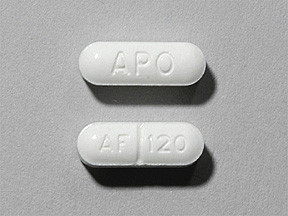
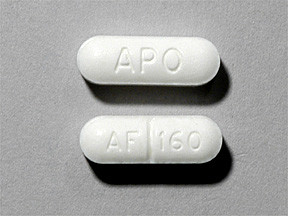

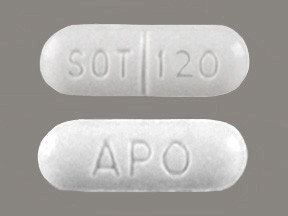
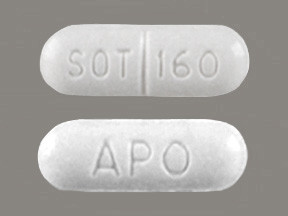
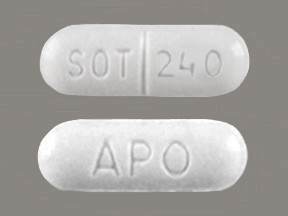
No Reviews Yet